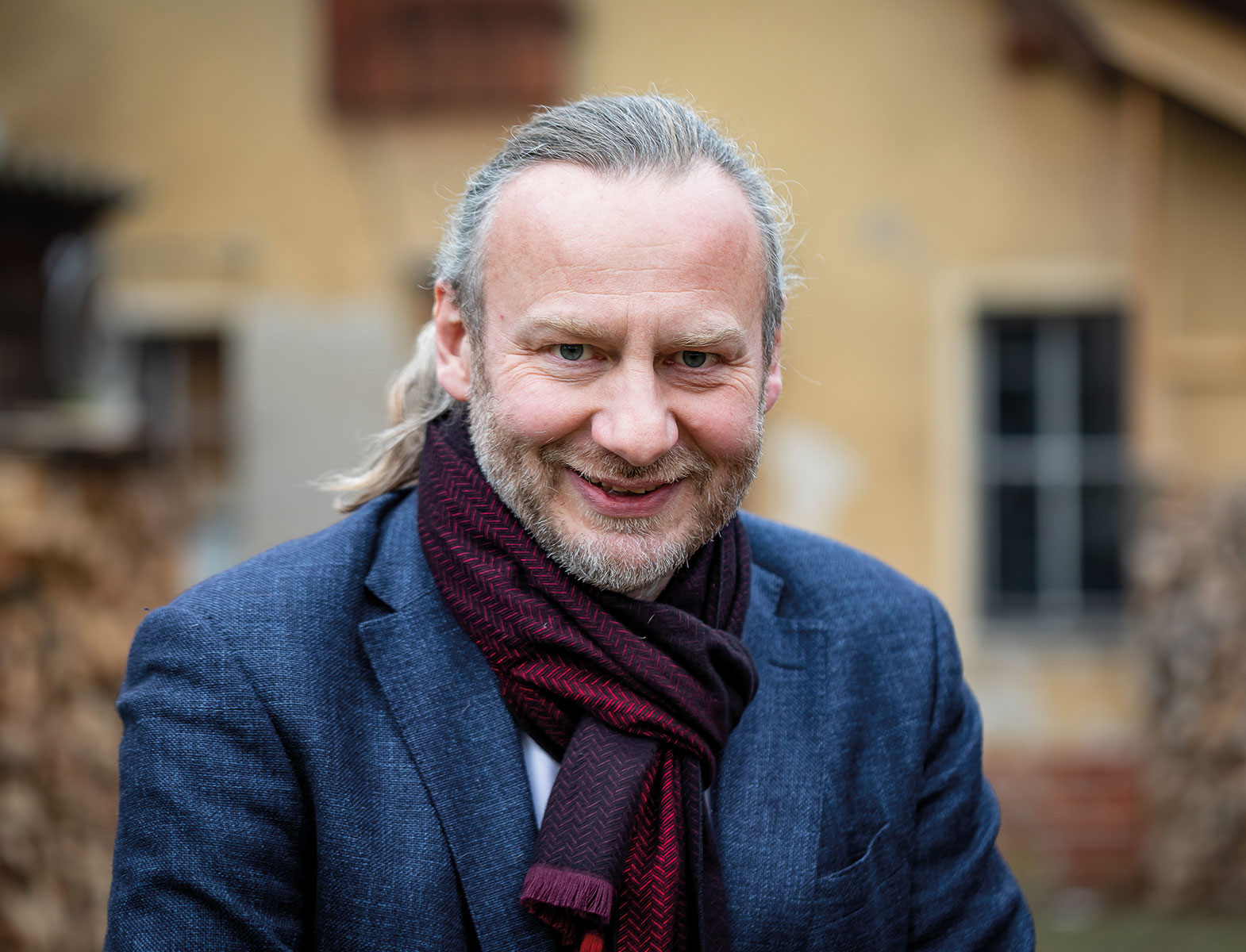Mr. Wimmer, in 2000, you got together with 16 like-minded people to found the Fördergemeinschaft Ökologischer Landbau Berlin-Brandenburg (FÖL) e.V., an association that is involved in numerous projects to promote more organic farming in our region. Why are you so concerned about nature conservation on agricultural land?
For many years, we have been observing a dramatic decline in biodiversity on agricultural land. Although Brandenburg already has a high proportion of ecological areas, the landscapes worthy of protection – so-called habitat types – are in a worse condition than the national average, and the threatened species on the Red List are declining too. This is why we need to act now!
Organic land management is highly beneficial for species conservation and biodiversity. Organic farming is less intensive and uses neither pesticides nor synthetic-chemical fertilizers. Biodiversity on organically farmed land is many times higher than on conventional fields. According to the Thünen Institute, the average numbers of field-flora species are 95 percent higher under organic management; the same goes for the numbers of field-bird and insect species, which are significantly higher too. In our nature conservation project, we raise awareness and advise organic and conventional farmers, among others, to implement (more) measures aimed at nature and species conservation.
Your project “GanzTierStark” (“WholeAnimalStrong”), in which TU Berlin is also involved, wants to encourage canteens in the Berlin-Brandenburg region to offer organic beef from species-appropriate pasture management. What opportunities and challenges does the increased use of regional and organic products contribute to the urban-rural partnership?
First of all: Consumers are increasingly interested in food that has been produced regionally, organically and in a manner appropriate for the species. They want to influence issues such as animal welfare and climate change through their eating habits. Regionally and organically produced food offers a great opportunity in this regard. The delivery routes are short, and consumers can make a direct difference – locally and in the region.
When it comes to whole-animal utilization of organic grazing cattle in canteens, the challenges lie in the practical issues of availability, logistics and communication. Chefs need to learn new methods for preparing meat, and diners in restaurants and canteens need to get used to new dishes and possibly prices. Value chains from pasture to plate need to be established and strengthened. To make all this possible, we are working in our project to increase mutual understanding between consumers, meat processors, chefs and farmers.
Taking a look at the future of sustainable agriculture, how important is it to support young farmers in Brandenburg and to exchange views and ideas at organic events with members of the public?
For a variety of reasons, organic farming is also lacking young talent. With a capital investment of around 600,000 euros per worker, the industry is very capital-intensive. In addition, prices for farming land have risen sharply, and farmers starting up are competing for land with non-agricultural investors. FÖL supports young farmers with advisory and mentoring programs; and we also campaign to provide more support for young farmers and more advisory services.
The exchange between farmers and consumers is crucial for our work. Those who understand why and how organic farming positively impacts issues such as biodiversity, animal welfare and soil health are, and will be, ready to make a difference with their buying behavior – now and in the future.
The interview was conducted in March 2022.
Picture: FÖL e. V.


